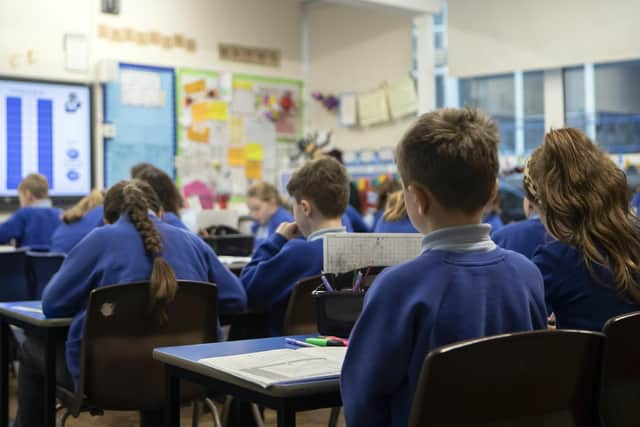Analysis: Has the SNP's drive to eradicate exclusions from schools gone too far?
The decision to effectively end the use of permanent exclusions in Scotland’s schools was a significant one.
It is not entirely clear whether there was a specific ruling, when it was made, or how it was communicated to schools and the wider public.
Advertisement
Hide AdAdvertisement
Hide AdBut statistics show a steady reduction from the moment the SNP took power in 2007, to the point where they are now almost non-existent.


Of course, there are good reasons for moving away from exclusions. They were previously used in an inconsistent way between schools, and often only furthered the disengagement of troubled young people, particularly males, from poorer backgrounds, with additional support needs.
In the early 2000s, there was hope that by moving towards “restorative practices”, where youngsters are encouraged to take responsibility for the actions, behaviour in schools would improve.
In the last few years, all the evidence suggests behaviour has gone the other way, however.
There are a number of reasons for that trend, including the disruption caused to education during the Covid-19 pandemic and worsening poverty during the cost-of-living crisis.
But there is little doubt that many teachers and school staff now feel they do not have the tools they need to respond to worsening behaviour. Exclusions are not really an option, and there is little time to implement restorative practices properly.
Parents, meanwhile, cannot fathom why the perpetrators of sometimes extreme and regular attacks on their children are allowed to remain at a school, while they are the ones forced to consider alternatives.
That much was clear from desperate pleas made to Scottish ministers from parents and carers, as outlined by The Scotsman last week.
Advertisement
Hide AdAdvertisement
Hide AdOther than in school, there is almost no scenario where adults or children would be expected to continually come face-to-face with people who abuse and assault them.
Education Secretary Jenny Gilruth said in November that it was important not to “demonise” young people, adding: “We do not want a return to punitive approaches – society has moved on."
Clearly, it would be unwise to completely unravel a quarter of a century’s work to reduce exclusions in Scotland.
But that does not mean society should be content with what is currently happening in our schools.
Comments
Want to join the conversation? Please or to comment on this article.
